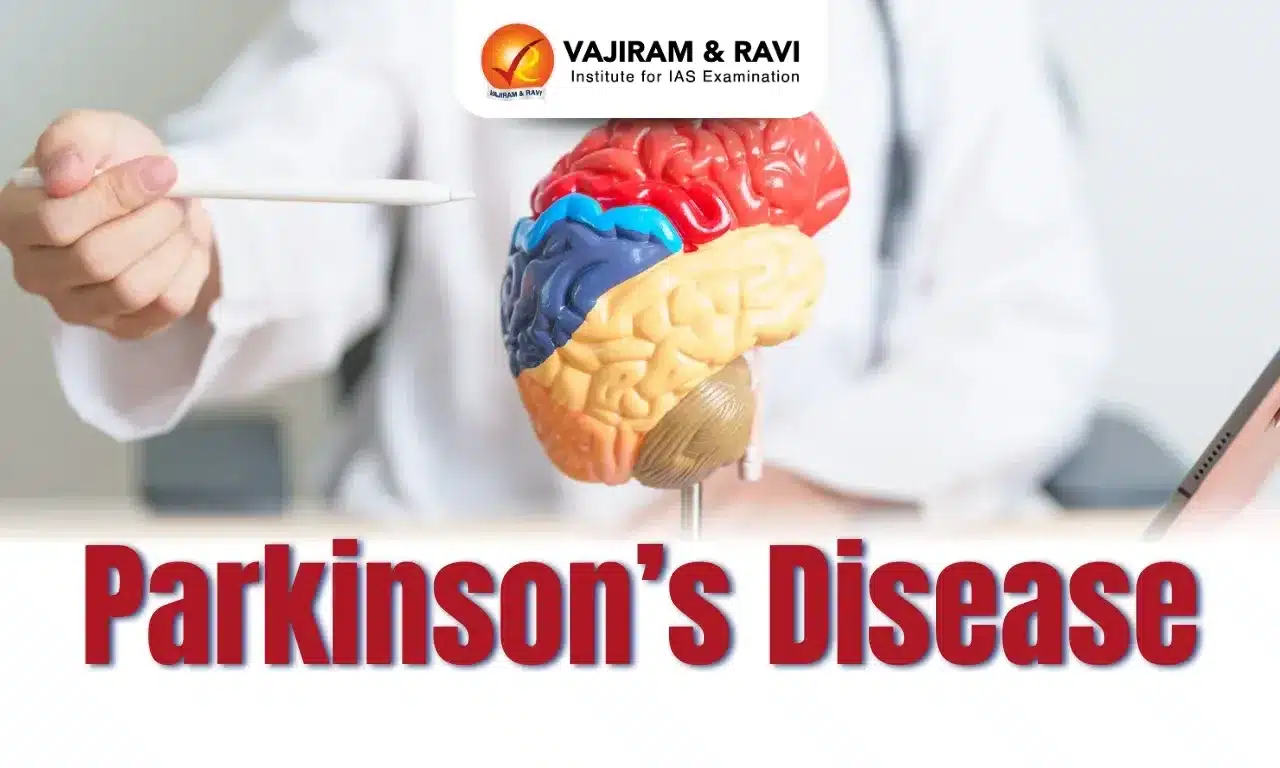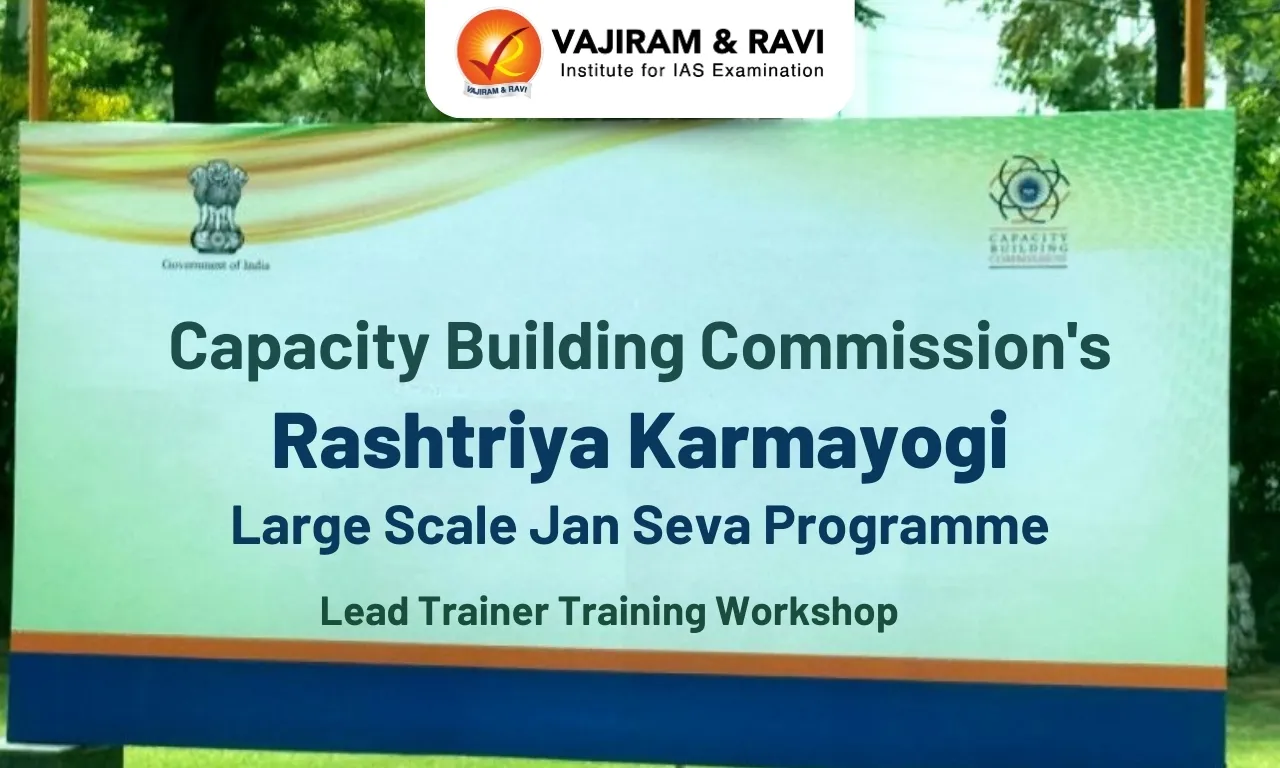Parkinson’s Disease Latest News
A condition that compels people to move their legs could indicate they have a greater chance of developing Parkinson’s disease.
About Parkinson’s Disease
- It is a progressive neurodegenerative disorder that primarily affects movement.
- It causes nerve cells (neurons) in parts of the brain to weaken, become damaged, and die, leading to symptoms that include problems with movement, tremor, stiffness, and impaired balance.
- As symptoms progress, people with PD may have difficulty walking, talking, or completing other simple tasks.
- Although many brain areas are affected in Parkinson’s disease, the most common symptoms result from the loss of neurons in an area near the base of the brain called the substantia nigra.
- The neurons in this area produce dopamine.
- Dopamine is the chemical messenger that transmits signals in the brain to produce smooth, purposeful movement.
- Most people with PD have lost 60 to 80% or more of the dopamine-producing cells in the substantia nigra by the time symptoms appear.
- Lack of dopamine causes the slowed movements and tremors symptoms of Parkinson’s disease.
- Who does it affect?
- The disease usually occurs in older people, but younger people can also be affected.
- Men are affected more often than women.
- The cause of PD is unknown but people with a family history of the disease have a higher risk.
- Exposure to air pollution, pesticides, and solvents may increase risk.
- People with PD often develop a “parkinsonian gait.”
- This includes a tendency to lean forward, taking small, quick steps as if hurrying (called festination), and reduced swinging in one or both arms.
- They may have trouble initiating movement (called “start hesitation”) and stop suddenly as they walk, freezing in place.
- Diagnosis: Currently, no blood laboratory or radiological tests are available to diagnose Parkinson’s disease.
- Treatment: There’s no cure for this disease, but treatments can help significantly improve your symptoms.
Source: SA
Last updated on February, 2026
→ UPSC Notification 2026 is now out on the official website at upsconline.nic.in.
→ UPSC IFoS Notification 2026 is now out on the official website at upsconline.nic.in.
→ UPSC Calendar 2026 has been released.
→ Check out the latest UPSC Syllabus 2026 here.
→ Join Vajiram & Ravi’s Interview Guidance Programme for expert help to crack your final UPSC stage.
→ UPSC Mains Result 2025 is now out.
→ UPSC Prelims 2026 will be conducted on 24th May, 2026 & UPSC Mains 2026 will be conducted on 21st August 2026.
→ The UPSC Selection Process is of 3 stages-Prelims, Mains and Interview.
→ Prepare effectively with Vajiram & Ravi’s UPSC Prelims Test Series 2026 featuring full-length mock tests, detailed solutions, and performance analysis.
→ Enroll in Vajiram & Ravi’s UPSC Mains Test Series 2026 for structured answer writing practice, expert evaluation, and exam-oriented feedback.
→ Join Vajiram & Ravi’s Best UPSC Mentorship Program for personalized guidance, strategy planning, and one-to-one support from experienced mentors.
→ UPSC Result 2024 is released with latest UPSC Marksheet 2024. Check Now!
→ UPSC Toppers List 2024 is released now. Shakti Dubey is UPSC AIR 1 2024 Topper.
→ Also check Best UPSC Coaching in India
Parkinson's Disease FAQs
Q1. What type of disorder is Parkinson’s disease?+
Q2. Which part of the brain is primarily affected in Parkinson’s disease?+
Q3. Which group is more likely to develop Parkinson’s disease?+
Q4. What causes the tremors and slow movement in Parkinson’s disease?+
Tags: parkinson’s disease






















